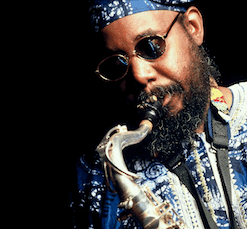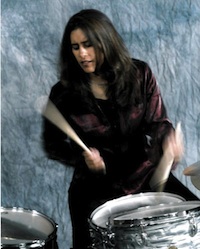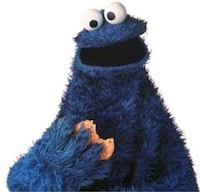You wouldn’t be wrong to refer to Word to the Wise, the latest outing from songwriter, singer and Titan of the Telecaster Bill Kirchen, as a “duets” album. The record—Kirchen’s second for Proper American, hitting May 25—is crammed to the brim with memorable appearances from a revolving cast of characters including Norton Buffalo, Paul Carrack, Commander Cody, Elvis Costello, Blackie Farrell, Dan Hicks, Nick Lowe, Maria Muldaur and Asleep at the Wheel alumna Chris O’Connell.
But there’s a lot more going on here than the standard blending of two voices. Each of these all-star pals of the veteran artist puts his or her own distinctive stamp on the proceedings, from Hicks’ sublime scat singing with himself on the title tune to Costello’s “bulging-veined” (as Kirchen puts it) assault on “Man in the Bottom of the Well,” an original the gracious host pulled out of his thick songbook guessing it would be a good fit—and it’s viscerally apparent that Bill was on the money with his selection. “Elvis is not just messing around, as we all know,” Kirchen points out. “He’s a soulful man.”
Merle Haggard’s “Shelly’s Winter Love” is a more conventional duet, but Kirchen opts to get out of the way as Lowe and Carrack blend their burnished voices on it in the classic Everly Brothers manner. “The last thing I’m gonna do is get up and sing with Paul Carrack and Nick Lowe,” Kirchen says with a laugh. “It’s not gonna happen. That song just marched up to second position on the album…The way those two guys go toe-to-toe is just sublime.” In all three of these instances, and others as well, Kirchen chooses to hide in plain sight, doing what he does best—subtly and masterfully playing the role of lead guitarist, every ringing note brilliantly serving both the singer and the song.
The album, produced and recorded by Proper’s Paul Riley, was tracked at London’s Specific Sound, with additional recording done all over the map, from Austin to Vancouver to Bill’s home setup in Maryland. “We sent the tapes of ‘Man in the Bottom of the Well’ to Vancouver for Elvis to put his vocals on, but the rest of the time, we traveled around the country and collected those people,” Kirchen explains. In each case, the guests recorded their parts on top of basic tracks laid out by the core band of Bill, drummer/singer Jack O’Dell, bass player Johnny Castle and keyboardist/guitarist/vocalist Austin de Lone, the former leader of seminal pub-rock band Eggs Over Easy.
On his first Proper album, Hammer of the Honky Tonk Gods, Kirchen saw his challenge as “trying to write some songs that were more from the heart and closer to the bone. I wanted to let go of my stance of writing attitude-laden truck-driver songs—I’ve done enough of those to last a lifetime. But, as with any of my albums, I love so many kinds of music that I haven’t figured out a way to focus down and just do one specific thing.” To which we happily say, vive le difference.
The new album opens with the rockabilly rave-up “Bump Wood,” which Kirchen describes as a “glad to be alive song,” but it also ventures into finger-snappin’ boho jazz with the title tune, and deep country with “Arkansas Diamond,” co-written with Bill’s Austin friend Sarah Brown and his wife Louise, the same crew responsible for the contemplative, wide-open-spaces ballad “Time Will Tell the Story.” But Kirchen also happily snags the Roger Miller standard “Husbands and Wives” for a bona fide guy/gal duet with Chris O’Connell, and together they turn in one of the album’s most moving performances.
Moving with the momentum and stylistic diversity of the T.A.M.I. Show and Mad Dogs & Englishmen (come to think of it, there are several members of both constituencies on this platter), Word to the Wise serves up heaping portions of rock ’n’ roll, country, boogie-woogie and Western swing. It’s loaded with verbal and musical witticisms, as well as moments of deep poignancy, all of it set against a vital backdrop of Telecaster twang, tremolo and reverb, as Bill does his thing, riffing like Chuck Berry on “I Don’t Work That Cheap,” whipping up thunder and lightning Richard Thompson-style on “Time Will Tell the Story” and spinning out quicksilver runs that recall Mark Knopfler’s work in front of Dire Straits on Blackie Farrell’s “Open Range.”
“I was surprised at how much guitar ended up on this record,” says Kirchen. “On some of the tracks, where we hadn’t figured out where the vocal was gonna be yet, I’d do the guitars sitting at home, and I’d just lather it on. I was assuming that Paul would have a more ruthless editing knife, but on a lot of the songs, like ‘Open Range,’ there’s just an ass-load of guitar. It’s funny, I didn’t set out to make as much guitar noise as I did, but then again, I can’t deny I played all that stuff. Part of it was being self-indulgent, just sitting at home with an amp in the basement and a cord running down the heat duct and having at it. It came out a little more rock ’n’ roll that way, which I really enjoyed. I tend to be a really clean country-based picker, and it was fun taking the Deluxe reverb and cranking it up. I hope it’s OK.” No worries, Bill—it’s more than OK; it’s downright godhead.
Each song has a rambling back story, providing insight into Kirchen’s omnivorous creative process while also demonstrating his vast knowledge of musical history. None of these roving narratives is more fascinating than the one he tells about the instant classic “I Don’t Work That Cheap.”
“I’ve always been a Bo Diddley fan,” he begins, “so when he died, I was thinking about his song ‘Who Do You Love’ and thinking, ‘Is there a better song than this one?’ We were imagining talking to Bo Diddley about it, going, 'You used what for a necktie? Mr. Diddley?’ A cobra snake? Goodness!' I was kiddin’ around with Nick about that, and he goes, ‘You walked 44 miles of barbed wire? I can usually only manage eight or nine myself… ’ Anyway, that’s how we got goin’ on it.
“So my buddy Blackie Farrell and I decided to write a ‘brag’ song in that spirit, and I got that line from the great fiddle player Johnny Gimble: ‘Don't try to pay me what I’m worth—I don’t work that cheap.’ It resonated with me, but I decided not to think about it too much or I’d get confused. So we tried to write a brag song from that stance of a guy who would say something like that. When we were writing it, Blackie said, ‘This is a comic book, Bill,’ and I said, ‘Yeah, exactly.’ I grew up reading ‘Pogo,’ and I picture this guy as an Albert Alligator type. There’s this great picture of Albert getting all dressed up for a date; he’s pulling on a catcher’s mitt, he’s got a frying pan on his head and he says, ‘Funny how a good-lookin’ guy looks good no matter what he throws on.’”
In his wonderfully engaging and informative liner notes, Bill manages to transform his description of the origin of “Valley of the Moon” into a moving elegy for his dear friends Norton Buffalo and Chris Gaffney. “Louise met [Norton] and brought him to the band’s attention when we lived in Valley of the Moon, Sonoma County, CA,” he writes. “We subsequently took him to Europe for what turned out to be the last hurrah Commander Cody album, We’ve Got a Live One Here. He was in my original Moonlighters band along with Blackie Farrell. For decades, Norton played on dang near everybody’s record or movie soundtrack. A triple-threat harp player, songwriter and singer, Norton sadly succumbed to cancer shortly after cutting the track for this record. He is greatly missed. Norton solos on ‘Valley of the Moon,’ which I wrote for Louise after a trip to Glen Ellen, CA, where we had lived and married 35 years before. We were on our way to attend a wake for our friend Chris Gaffney, and the song took on special poignancy after Norton’s death.”
Justly famous for his indelible Telecaster sound on “Hot Rod Lincoln,” his 1972 Top 10 hit with Commander Cody, Kirchen has been everywhere since he first plugged in during the mid-’60s: he was a founding member of the legendary Commander Cody and His Lost Planet Airmen, he’s released eight critically acclaimed solo albums, he’s toured internationally with Nick Lowe and has performed with the likes of Doug Sahm, Gene Vincent, Elvis Costello, Dan Hicks, Emmylou Harris and Link Wray. Each step of the way, he’s made a deep impression with his singular six-string virtuosity. As the Washington Post’s Mike Joyce put it, “The folks who make Fender Telecasters ought to stop what they’re doing and cut Bill Kirchen a fat check.”
On the title song of Hammer of the Honky Tonk Gods, Kirchen wrote of his trusty Tele that it was “born at the junction of form and function,” but he could’ve just as accurately been referring to himself—if he wasn’t so damn humble, that is. “I’m really thrilled with the album, man, because for Proper to have that much interest in me to put this out, I mean, honestly, at this point in my life it’s not something I can take for granted,” Kirchen reflects. “It’s been 40 years since I’ve been fulltime at this, and I’m still not sure if I have a career, but I know I have a job.”
- Friday, October 26 8:00 pm
- Bill Kirchen & Too Much Fun with Special Guests Heidi Claire and Austin de Lone
- 142 Throckmorton Theatre: 142 Throckmorton, Mill Valley, CA
- (415) 383-9600
- Sunday, October 28 8:00 pm
- Bill Kirchen & Too Much Fun plus Special Guests, Hardin Burns opens
- Freight & Salvage: 2020 Addison St., Berkeley, CA
- (510) 548-1761
- $26.50 Advance / $28.50 Door



